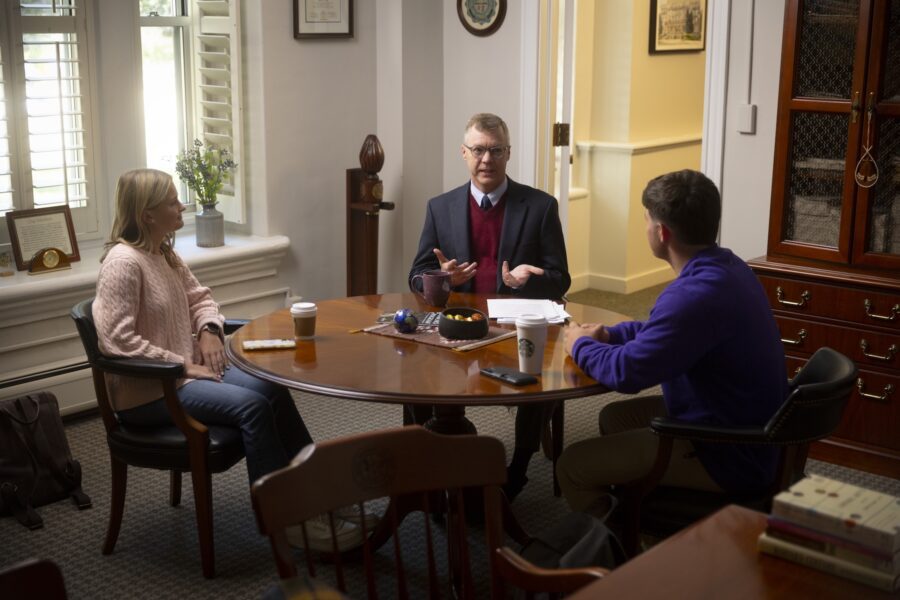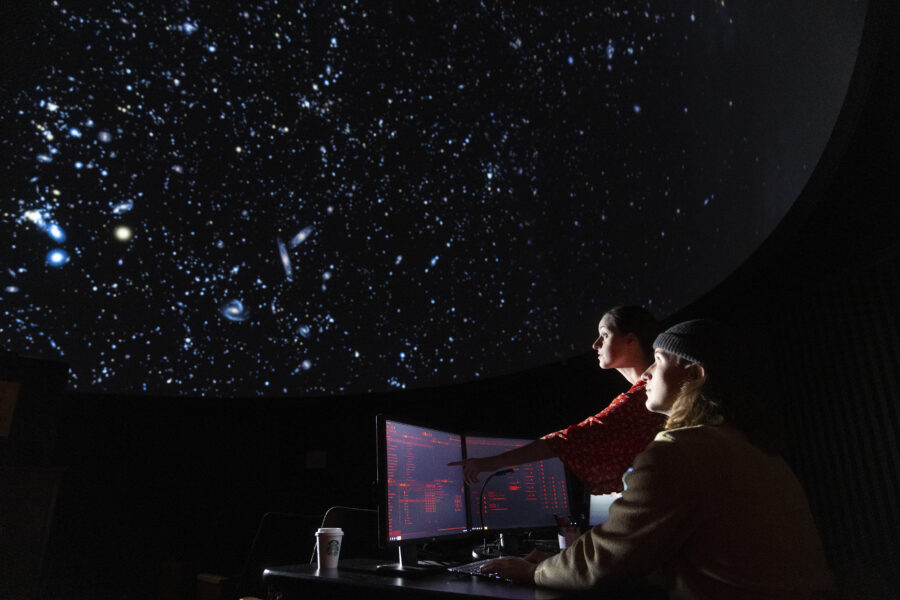
“Don’t just learn about the universe. Explore it.” – Strickler Planetarium
Strickler Planetarium, a stalwart feature on the campus of Olivet Nazarene University since 1967, is getting a major upgrade this spring with a new digital projection system. Strickler—the only permanent planetarium in Kankakee County—utilizes a double fish-eye lens system to project images of the night sky onto the domed ceiling of the historic building.
The new digital projection system will be completely installed and programmed by the end of this month. In the meantime, planetarium director, Madeline Shepley, decided to host a special free event for people to experience other astronomical features the planetarium offers.
“One of the core things we do at the planetarium is teach people about astronomy to inspire them to explore what they’ve learned on their own,” Madeline says. “We want their experience to extend beyond the planetarium.”
On Friday and Saturday, February 14-15, Strickler is opening its doors for an open-house public event, Bringing the Stars into your Home. At this event, planetarium operators will demonstrate the extensive features of Stellarium, a free web-driven software that aids at-home exploration of the night sky. Additionally, attendees will have the chance to view Olivet’s collection of meteorites, and weather permitting, there will be telescopes available outside so guests can immediately apply what they learn from the Stellarium software to better view particular elements of the solar system. The event is free to attend and no registration is required.
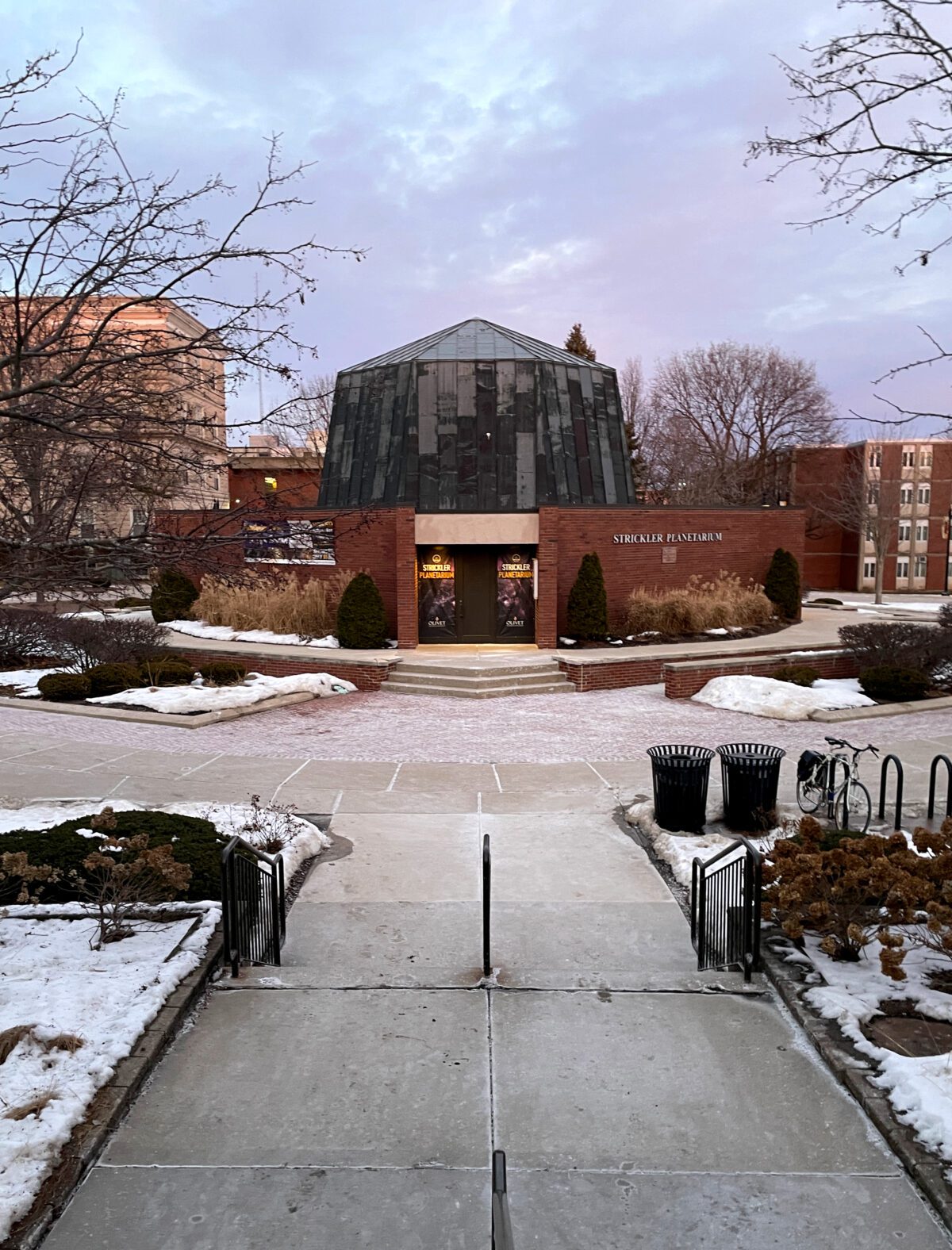
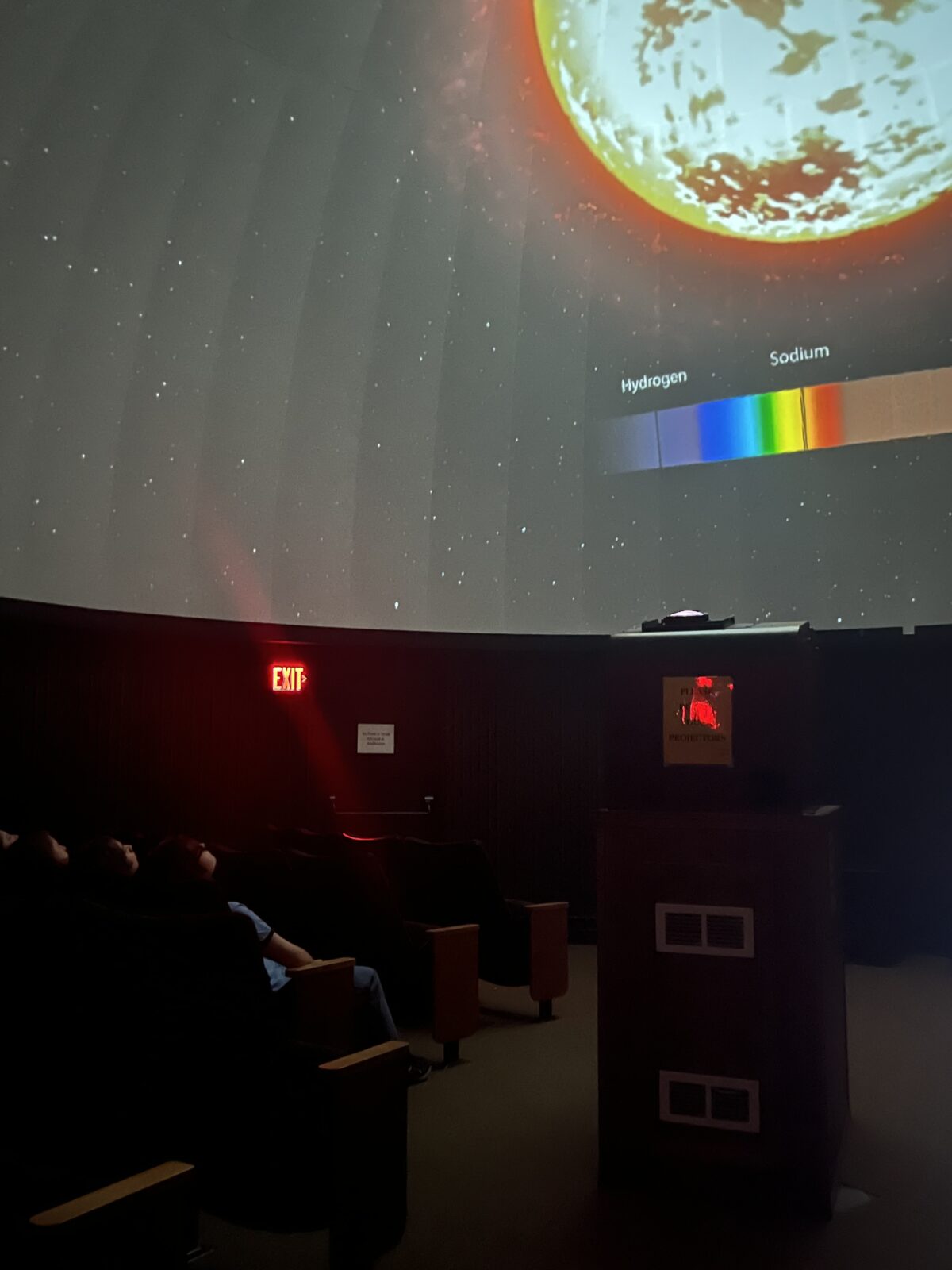
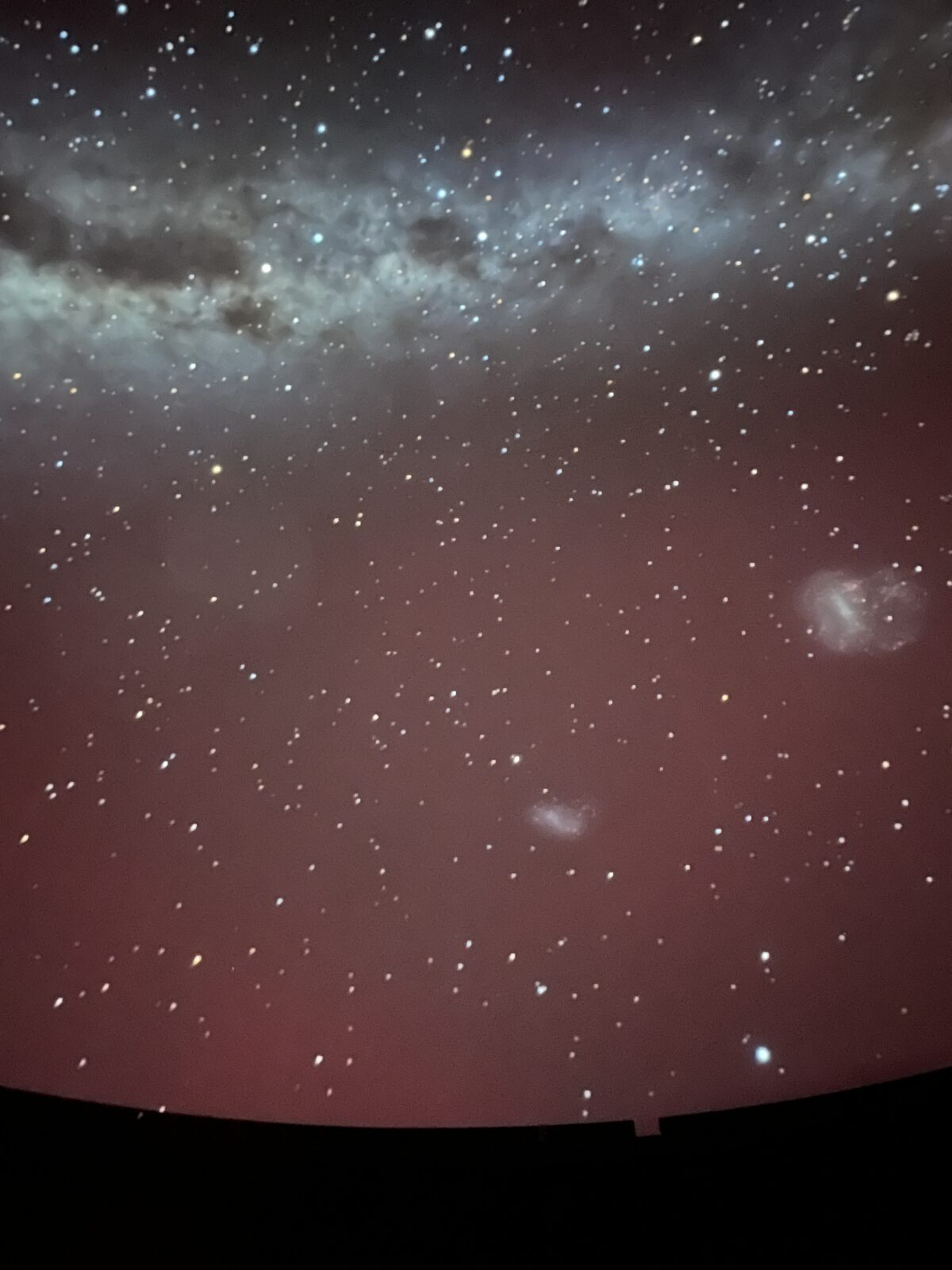
“Whether you’re 8 or 80, the night sky never fails to bring people a sense of wonder about the universe and about God,” Madeline says.
Strickler Planetarium installed its first fully-digital projection system in 2008, which has been well-used over the past 17 years. On average, the planetarium hosts 70 shows per year for the campus community as well as regular field trip opportunities for local school children—giving a yearly average of 3,200 people the unique chance to become more familiar with the sky and its celestial objects.
“We might not be the oldest or most well-known planetarium,” Madeline admits, “but we’re local in the community and we’re a relatively inexpensive place to visit. Whether people come to one of our normal shows or special events like this one, I hope they take advantage of the opportunity to learn about astronomy at Strickler and then take that knowledge home for further exploration.”
Visit strickler.olivet.edu for more information on upcoming planetarium shows and other events.


